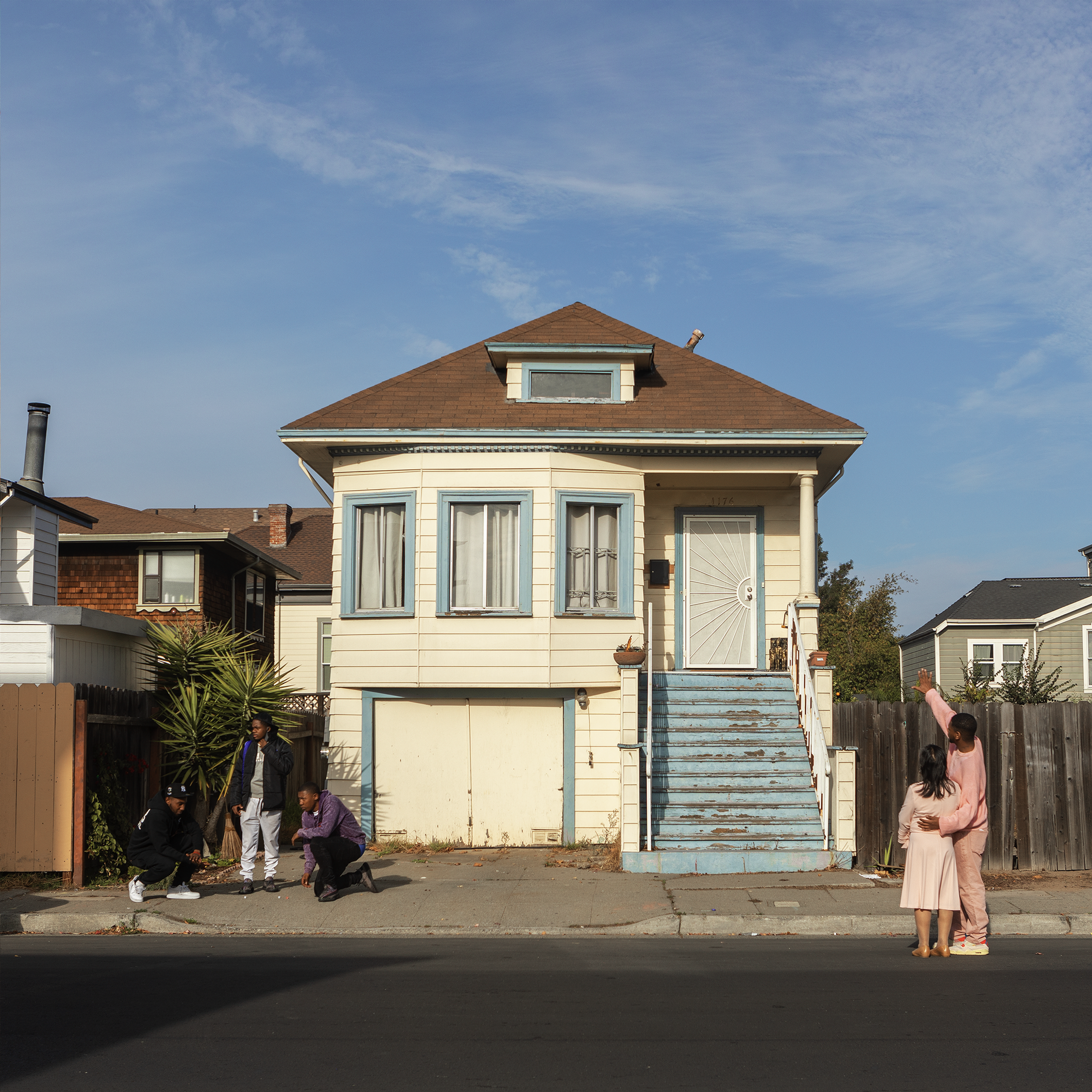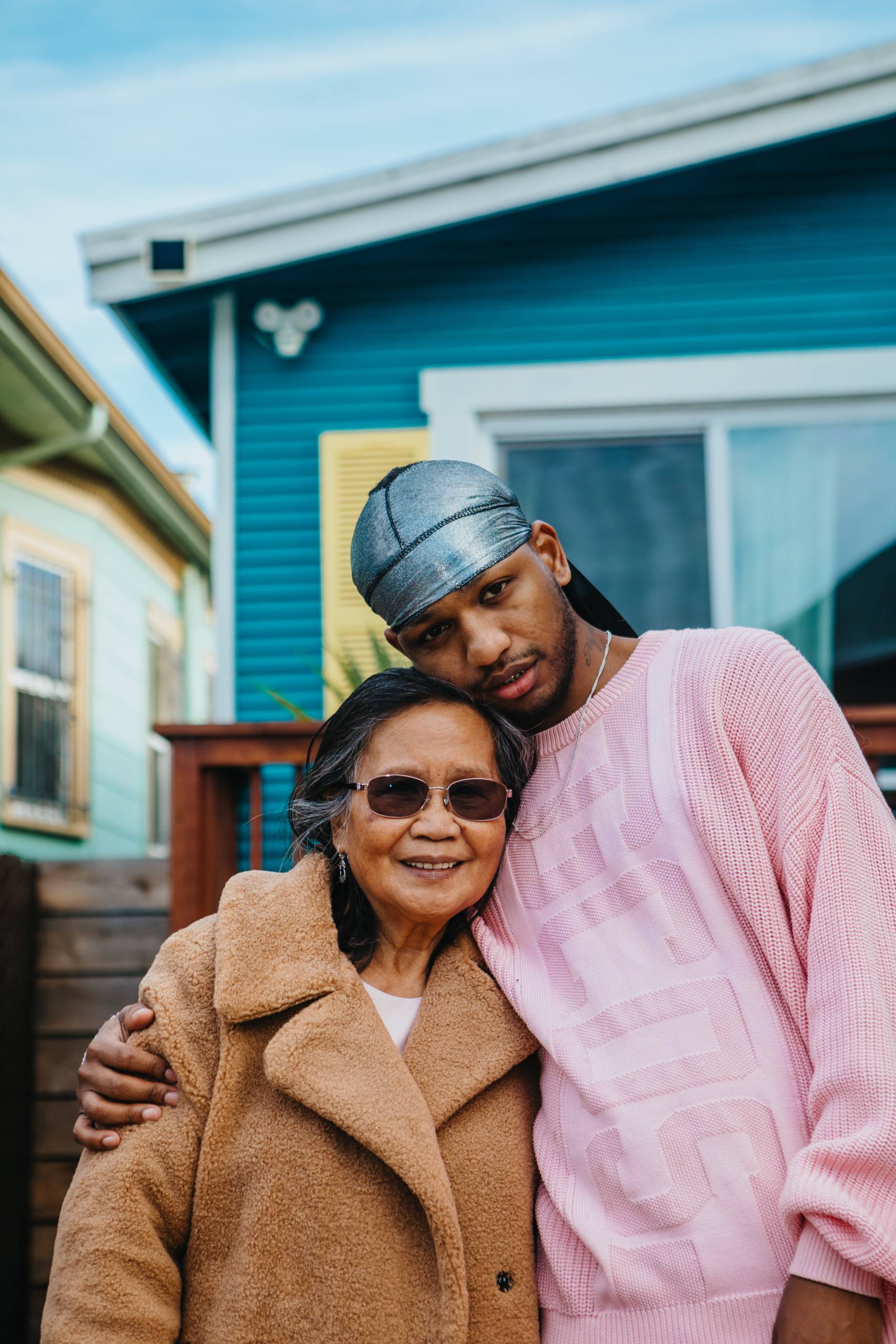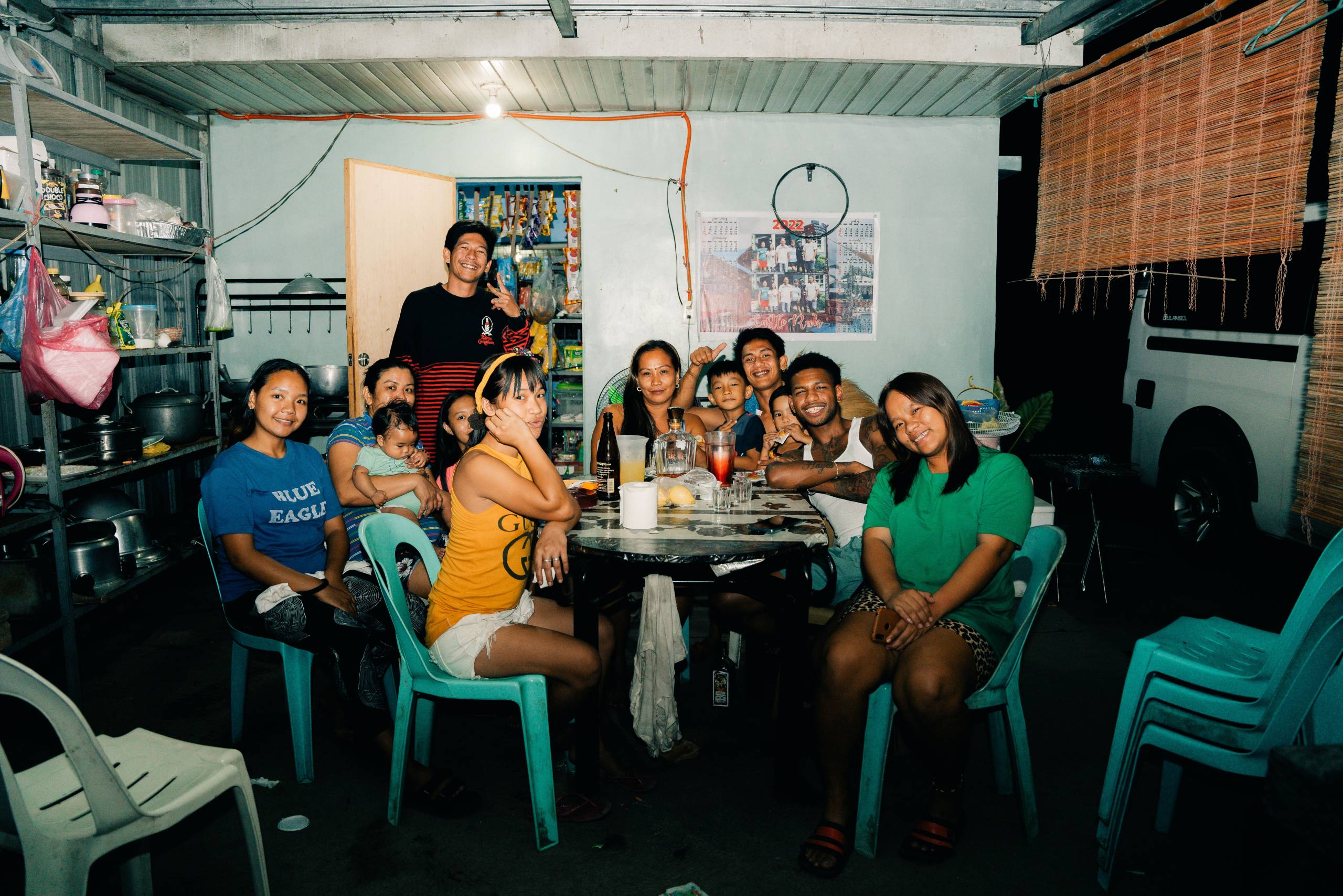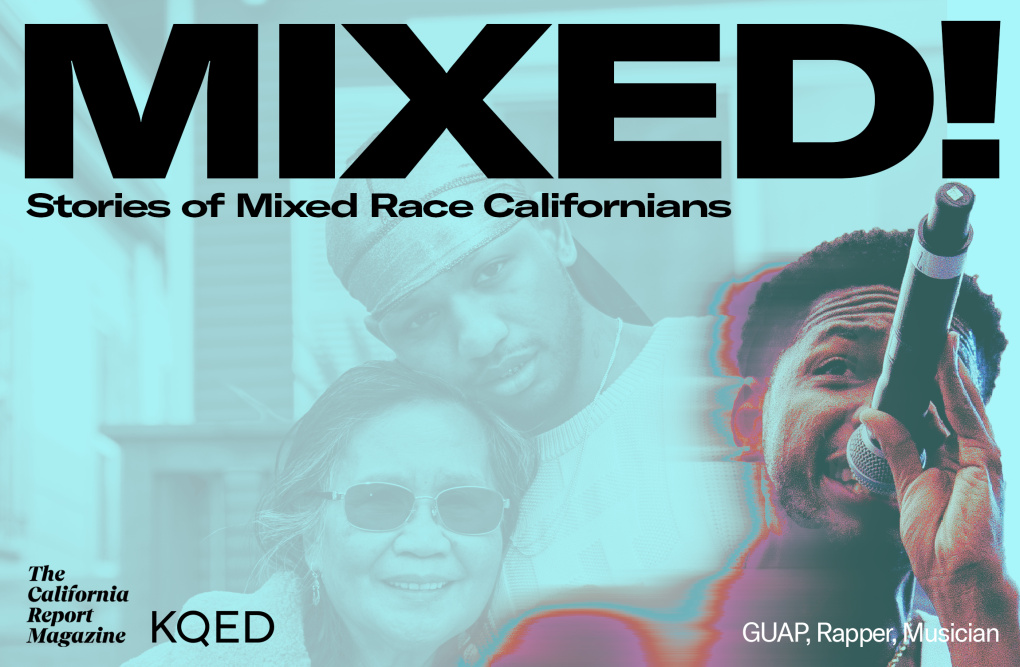This week on Rightnowish we’ve got a special episode from our friends at KQED’s The California Report Magazine. They’ve launched a new series called MIXED: Stories of Mixed Race Californians. Over 7 episodes, the hosts Sasha Khokha and Marisa Lagos have honest conversations with other mixed race Californians about the challenges and joys of being multi racial.
Even if he’s not always recognized as part of the Asian American community, Oakland-born rapper Guap is fiercely proud of his Filipino roots. On the last track of his 2021 album, 1176, he tells an origin story spanning decades and continents. His grandfather, a Black merchant marine stationed in Subic Bay in the Philippines, found himself with a rip in the pocket of his uniform. He found a young Filipina seamstress to repair the pocket — and fell in love. When his time in Subic Bay came to an end, the two married and moved to a one-story house in West Oakland, where they would eventually raise their grandchild Guap, the first-born child of their youngest daughter.
1176, created in collaboration with Filipino American producer !llmind, is Guap’s most personal work to date. It’s the culmination of a circuitous path into the music industry, from first getting recognition as a scam rapper to being featured on a Grammy-nominated album and a Marvel movie soundtrack. For the KQED series “Mixed: Stories of Mixed-Race Californians,” hosts Sasha Khokha and Marisa Lagos spoke to Guap about growing up Black and Filipino, the cultural impact his lola had on him, and how his mixed identity shows up in his music.
This interview has been edited for length and clarity — for the full version, listen to the audio at the top of this story.

On growing up with his grandparents
A lot of my creativity and explorative intent just came from [my grandfather, Douglas]. He was super handy in carpentry and home improvement. I probably get everything else in my life from my grandma. She is the most hard-working, sacrificial person ever. She doesn’t have a selfish bone in her body. I actually want her to be more selfish. I watched her work so many under-the-table jobs, fight to get legalized, even dealing with breast cancer and she’s still here.






